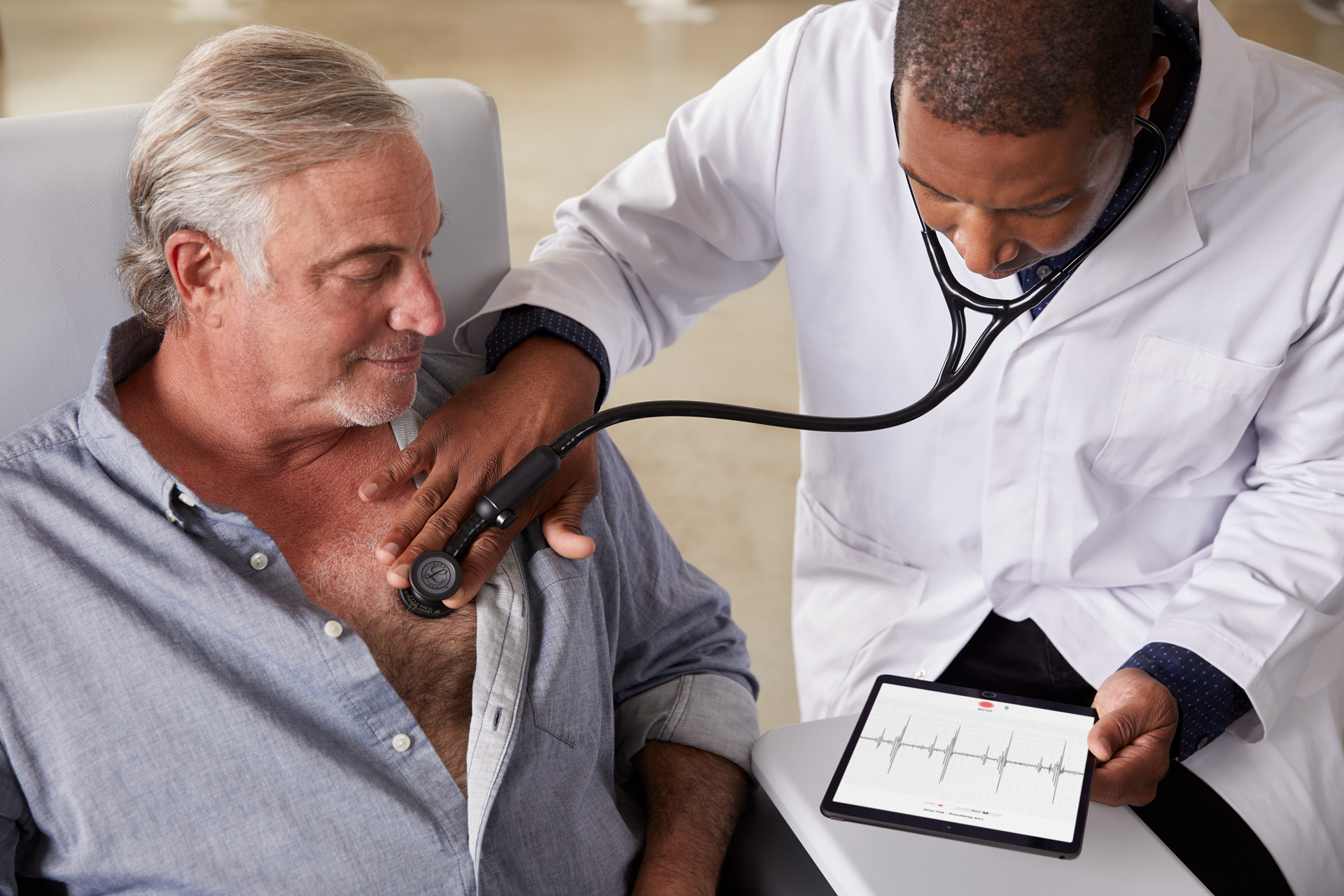René Laennec, a French physician, created a device in 1816 that let medical professionals listen to the hearts and lungs of patients
Eventually, that instrument—a stethoscope—evolved from a basic wooden tube to the portable, two-earpiece model that most doctors carry around their necks today.

A 2013 startup, Eko Health, uses artificial intelligence (AI) to improve this common medical instrument and bring it into the digital era. More than 500,000 doctors and other healthcare professionals have purchased stethoscopes from Eko over the previous ten years.
The firm has accumulated a significant collection of electrocardiogram (ECG) and chest sound data from the millions of patients it has treated. Eko utilized this dataset to create a variety of algorithms for diagnosing cardiac disorders.
“The stethoscope exam is wildly imprecise and inconsistent. According to Connor Landgraf, the CEO and creator of Eko Health, patients receive incorrect or delayed diagnoses. “We want to use AI to bring precision so patients can receive more accurate diagnoses earlier.”

According to Landgraf, a doctor may not always be able to distinguish minute changes between health and illness when using a typical stethoscope. “They can use our AI to combine cardiac rhythm assessment with [heart sounds] and then have the AI interpret that.” A primary care physician, nurse practitioner, or other front-line healthcare worker can practically carry about the expertise of a cardiologist, he claimed.
The FDA approved using the Eko stethoscope’s AI in April to help identify the early warning signals of heart failure during a standard physical examination.
The FDA has approved the company’s third algorithm. Recently, Eko’s AI was approved to identify heart murmurs, which may indicate aberrant heart valves. (Research conducted at Massachusetts General Hospital revealed that Eko’s AI recognized more than twice as many individuals with heart disease as primary care physicians.)
Thanks to its clinical milestones, Eko secured $41 million in a Series D investment led by Questa Capital, ARTIS Ventures, Highland Capital Partners, and NTTVC. With this current fundraising round, the company has raised $165 million.
The additional funding will be used to train AI algorithms to identify lung diseases, including pneumonia and asthma, and to market the device and companion software to medical professionals outside the United States.
Vas Bailey, partner at ARTIS Ventures, stated, “Of all the things that I invested in, Eko may be one of the most practical because you can easily use it to change outcomes.”
When Bailey was eleven years old, his father passed away from heart disease. “When you visit your physician for a standard workup, we can identify more cardiac problems. Perhaps we can save your life as part of your screening. Perhaps that would have contributed to my dad’s survival.
While no other business has incorporated AI into a stethoscope, Ultromics and CardioSignal are other startups that do so to identify cardiac problems.



